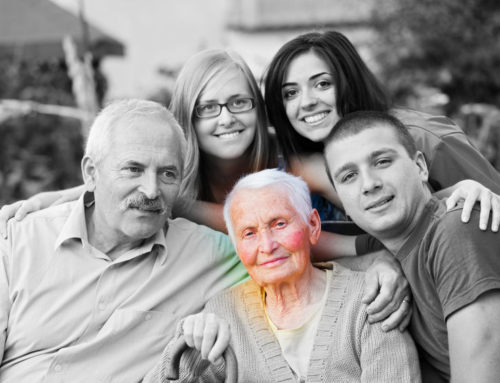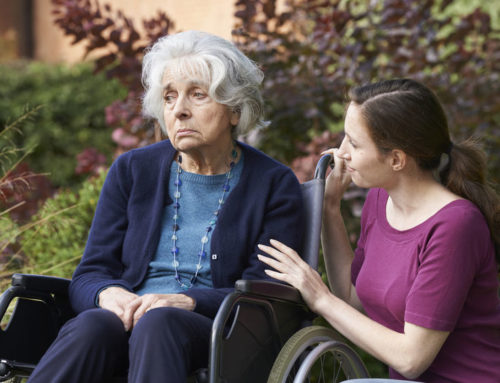Misunderstandings are common enough in everyday life. Whether we’re asking a stranger at a convenience store for directions or simply telling a story to our spouse, family members, or friends, the messages we intend to convey don’t always come across clearly. This is especially true when speaking with individuals living with Alzheimer’s disease or dementia. Those with the condition often have a difficult time remembering faces—let alone words—so it’s little wonder that our loved ones often misconstrue our meanings or that our words seem to occasionally fall on deaf ears.
Consequently, you may find that both you and your loved one grow tired, frustrated, or angry after many unsuccessful attempts to communicate a want or a need that—once upon a time—came as naturally as breathing. What’s extremely important to remember here is that you slow down and exercise patience with your loved one, and try your best to acknowledge that he or she is trying. Also important when communicating is to remember that you’re trying to communicate with an individual who has a disease—and not a diseased individual.
That said, you may want to consider some of the following tips when communicating with your loved one. Tips including avoiding speaking about your loved one as though he or she were not in the room. Also, avoid attempts to communicate in environments full of distracting noises. For instance, instead of trying to tell your father something important while you’re both sitting in front of the television, just take a moment to go outside or in another room where there are fewer distracting noises or images.
Taking time to put yourself in your loved one’s shoes as well as taking time to consider your surroundings are both useful ways to avoid putting your loved one in a situation where he or she is bound to grow frustrated or upset. That said, though, despite your best efforts, your loved one could still erupt in an emotional outburst or reaction puts his own safety at risk. Should you find yourself in this type of situation frequently, then you may want to consider reaching out to a professional, such as your loved one’s physician or even an elder law attorney, who can address any concerns you may have regarding your loved one’s safety.





